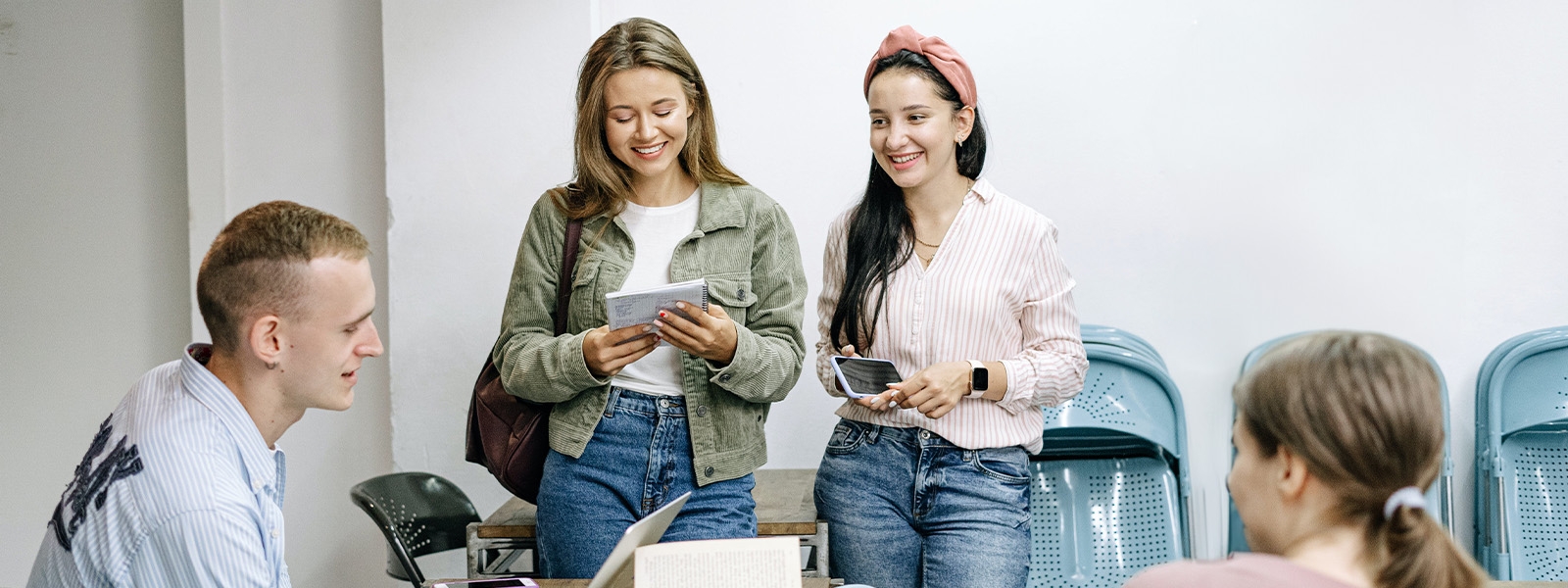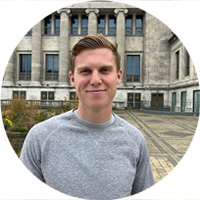Dreams and plans of physiotherapy student Luke Kernan
Gymna in conversation with emerging talent

The new academic year has begun, and we kick off with an engaging series of interviews. Welcome to "Physio Talks," where we converse with physiotherapy students and physiotherapists, sharing their knowledge and visions. Discover the world of physiotherapy through their eyes and be inspired by their dreams and future outlook.
For this interview, we have invited Luke, a physiotherapy student at Hogeschool Rotterdam (Netherlands), to share his passion for the field and his vision for the future of physiotherapy with us. We explore what drives him and why he chose this exciting career.
Luke, first of all, we would like to know: Why did you decide to study physiotherapy?
 I've always had a deep fascination with the human body. It's a miraculous system, and I've always enjoyed understanding how it all works. Additionally, I've always cherished connecting with people and assisting them when needed. So, physiotherapy seemed like the perfect combination of my interest in the human body and my desire to support others.
I've always had a deep fascination with the human body. It's a miraculous system, and I've always enjoyed understanding how it all works. Additionally, I've always cherished connecting with people and assisting them when needed. So, physiotherapy seemed like the perfect combination of my interest in the human body and my desire to support others.
That sounds like a great match! Have you had a unique experience that strengthened your love for physiotherapy?
Absolutely. In 2019, I tore my ACL, which was a turning point. It brought me into close contact with physiotherapists and the field itself. I witnessed how they guided people to recover and get back on their feet, literally and figuratively. That inspired me immensely and gave me a better insight into what can be achieved through physiotherapy.
What qualities do you believe are essential for a good physiotherapist?
I believe sincere listening is crucial. A physiotherapist needs to listen to the client's story and show empathy genuinely. Building a strong bond between the client and therapist starts with genuine attention. Moreover, listening carefully can often uncover more than what is explicitly said.
That is undoubtedly true. Do you know which specialisation within physiotherapy appeals to you the most?
That's still a tough choice, but currently, I'm considering manual therapy, sports physiotherapy, or orofacial therapy. Each has unique challenges and opportunities, so I want to keep my options open until I gain more experience.
That's understandable, especially with the ongoing advancements in technology. How do you envision the future of physiotherapy?
The fundamentals of physiotherapy will remain the same, but technology will provide us with more tools. For instance, increasingly advanced measuring devices on the market can enhance physiotherapeutic treatment. Imagine having an app that helps measure joint mobility; that would significantly improve the precision of our treatments.
That sounds promising. Have you discovered any exciting techniques during your studies?
Certainly, dry needling has piqued my interest. Using a needle to target a muscle and achieve remarkable results is intriguing. The mechanism behind it is pretty fascinating.
During your internships, you must have experienced some touching moments. Can you share one with us?
Yes, it's always heartbreaking to witness a client's passing. Another touching moment was when I helped an elderly client regain the ability to walk long distances. It was moving to see how much joy it brought and how it changed his outlook on life.
That must have been a beautiful experience. Can you tell us more about your study experience at Hogeschool Rotterdam?
I've greatly enjoyed my physiotherapy studies. The program offered a structured approach to addressing various health issues. Initially, the emphasis was on understanding the human system and how it leads to health problems. In the fourth year, I chose the minor in Cervicocephale and Orofacial Complaints, which was challenging but incredibly captivating. Mainly, gaining insight into the connection between the head and the cervical region and everything in between was very appealing to me.
You're now entering the final phase of your studies. What is your ultimate dream as a physiotherapist?
My ultimate dream is simple: to feel fulfilled in this profession and help many people overcome their health issues to do what they love most.
What challenges do you hope to address in physiotherapy?
I would like to address outdated practices that some therapists still need to follow, such as endless massaging and mobilisation with little effect. Additionally, I want to encourage people to become more active to prevent or reduce their complaints.
Finally, do you have a message for future students considering studying physiotherapy?
Absolutely! If you're fascinated by the human body and enjoy working with people, don't hesitate. Physiotherapy is a wonderful profession where you can grow and positively impact others' lives.
With these inspiring words from Luke, we conclude our conversation. His dedication to the field and his vision for the future of physiotherapy promise a bright career for him and a better future for those he will help.
